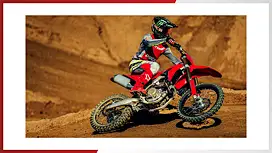
In a strategic move to accelerate its electrification roadmap, Daimler Buses has acquired a 49% stake in SINOS GmbH, a Regensburg-based software company specialising in intelligent charging management for electrified city bus fleets. The investment deepens the existing collaboration between the two companies and strengthens Daimler Buses’ capabilities in delivering smart, efficient, and scalable digital solutions for public transport operators.
SINOS’ software enables real-time optimisation of charging operations, allowing electric buses to charge during periods of low grid demand and lower energy costs. Its intuitive and modular platform has been widely adopted by more than 20 transport operators across Europe, integrated into Daimler Buses’ electrification offerings since 2022.
Till Oberwörder, CEO of Daimler Buses, stated, “The SINOS software solution is user-friendly, efficient, and expandable—attributes that have made it popular with our customers. This strategic stake allows us to leverage SINOS' innovation and expertise to tailor charging software even more precisely to our electric buses.”
Beyond charging optimisation, SINOS also supports depot digitalisation, helping operators track bus positions within depots and streamline vehicle operations. These advanced capabilities complement Daimler Buses’ existing digital services and will now be further developed as part of an expanded ecosystem.
End-to-End Electrification Through Daimler Buses Solutions GmbH
The acquisition aligns with the broader vision of Daimler Buses Solutions GmbH, a wholly owned subsidiary launched in 2023 to deliver turnkey electrification projects. From customised e-buses and hydrogen solutions to infrastructure planning, construction, battery storage, and digital fleet management, Daimler Buses Solutions GmbH provides comprehensive consulting and execution for the transition to CO₂-free bus operations.
A Roadmap Toward CO₂-Free Mobility
Daimler Buses continues to advance its dual electrification strategy—developing both battery-electric and hydrogen fuel cell technologies. The Mercedes-Benz eCitaro has been in production since 2018, with a hydrogen range extender introduced in 2023. The battery-electric Mercedes-Benz eIntouro intercity bus is scheduled for a 2026 debut, followed by electric coaches later this decade.
By 2030, the company aims to offer CO₂-free electric or hydrogen models across all segments in Europe and Latin America. In its European city bus segment, the target is even more ambitious: only CO₂-free models will be sold starting in 2030, and by 2039, all newly sold local application buses in Europe will be CO₂-free.
Also Read:
Daimler Truck’s GenH2 Fuel Cell Trucks Undergo Extreme Winter Trials

